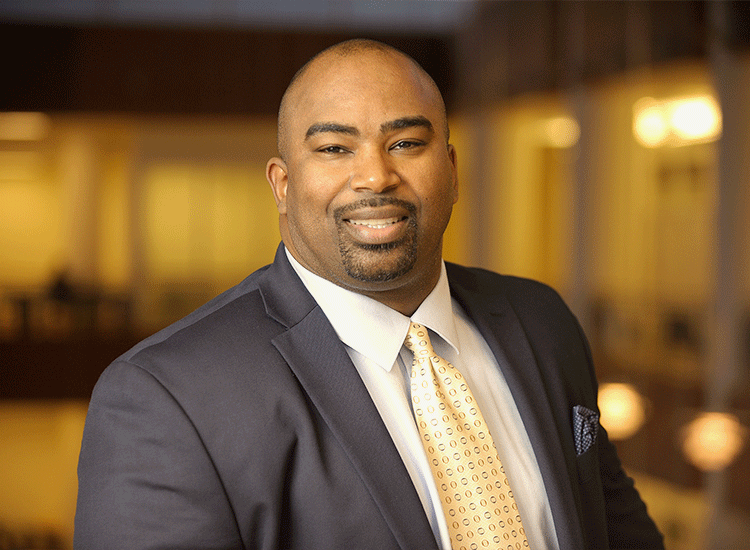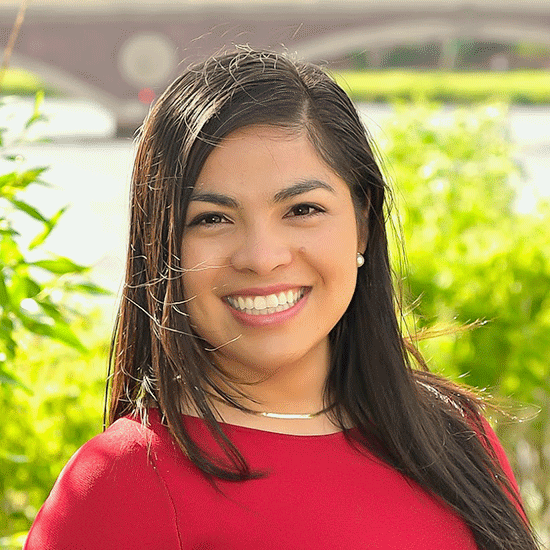On this page
Eugene Moore, PhD, MBA
Interim Assistant Director for TRIO McNair Scholars Program, University of Illinois, Urbana-Champaign
Champaign, Illinois
Program: Business Strategy: Evaluating and Executing the Strategic Plan
Areen [Shahbari] was incredibly thoughtful in how she approached the program. She was phenomenal in her ability to bring out the best in participants from a wide range of different industries.
What motivated you to take Business Strategy at Professional & Executive Development?
For many years, higher education has been seen as separate from the business sector. However, the higher education marketplace is changing very quickly. And as we have had a 10-year decline in enrollment, we are starting to see a convergence in thinking between education and business. So when leaders in higher education are trying to create strategy, I think that they need to really hone in on how business approaches strategic thinking.
I took this program to build my understanding of business strategy in order to help universities and colleges be more proactive about anticipating and reacting to changing market forces. By mastering the latest tools in strategic thinking in the business world, I can, in my way, try to apply those tools to higher education.
What have been some of the greatest benefits of this program?
I believe that you don’t have to have a fancy title or a formal leadership role to have a hand in leadership. So in the broader context of higher education, I’m always trying to talk to key people about the importance of being strategic in our thinking as we move forward. I am really just trying to offer my level of expertise and hope it provides some value.
To share a more specific example, when I was assistant director for access, equity, and inclusion at Illinois, I was very adamant that we continue in our efforts to provide inclusive programming that enabled students to succeed. I worked very hard to develop a strategic approach to programming that would help all students have that sense of belonging which is critical to their success.
It was important for us to remain innovative as we developed new experiences for students. More importantly, that we ensured our programming was exciting for both new and existing students. This level of strategic thinking allowed equity to move beyond the theoretical to the practical.
Was there a key takeaway or lesson from this program?
Areen [Shahbari] was incredibly thoughtful in how she approached the program. She was phenomenal in her ability to bring out the best in participants from a wide range of different industries.
She ensured that the material we covered was fresh. Business strategy is a very old topic, but she kept it very relevant to today’s issues. It can be very difficult for even seasoned instructors to create a fresh approach to some very old principles and theories.
Areen also guided us to think about strategy at a much deeper level than we usually do. Strategy is not just about defining where we want to go. We also need to think about how we will get there and about whether we are taking the right steps to achieve our strategic goals.
Areen focused on trying to develop strategy along a continuum of what you want success to look like. She helped us recognize when a change in strategy might be required and how to pivot when change is necessary.
Finally, the program focused on the importance of developing a collective vision to support the strategic plan and building buy-in. A strategic plan can’t survive if you don’t have everyone throughout the organization aligned with the short- and long-term goals.
Areen talked a lot about bringing people together early in the development process.
Too often, we try to gain buy-in when the strategic plan is already complete. But if you wait too long, stakeholders — whomever they may be — feel they are being dictated to, and are less likely to engage in and support the strategy down the road.
What was the most challenging aspect of the program for you?
I’m what they call “old school” and I really enjoy face-to-face interactions. I love to see smiling faces sitting around a table together, welcoming each other and engaging each other in great discussions. So while the online program was excellent, I think it would have been better if we had been together in the room, feeding off each other’s positive energy.
But other than that, I thought it was a very well put together program.
Do you have any advice or tips for people interested in this program?
I think it’s important for participants to bring their authentic selves to these types of programs. Even before you begin a professional development program, you have to ask yourself what you bring to the program and how open you are to making changes that will inform your career.
At Harvard, you have the opportunity to work with some of the best instructors on campus today. But any professional development program is a partnership. You have to bring your own willingness to grow and to change in order to see true benefits of programs like this.
Describe your experience in this program in one word.
Invigorating.
*Written by Mary Sharp Emerson, Digital Content Producer, Harvard Division of Continuing Education, based on an interview with Eugene Moore.

